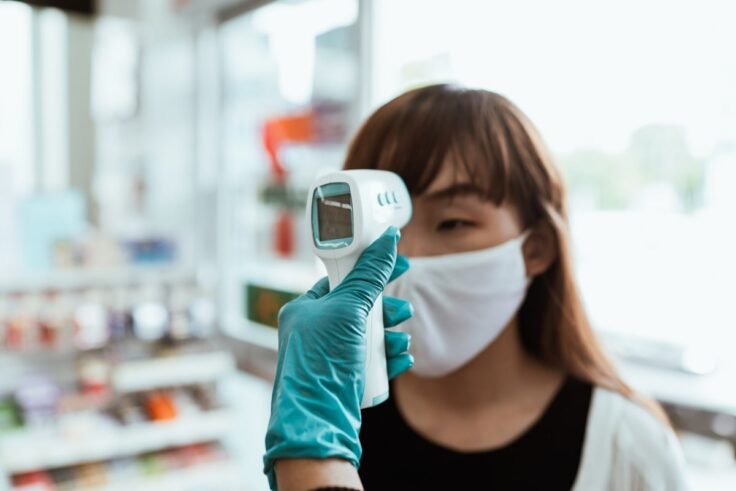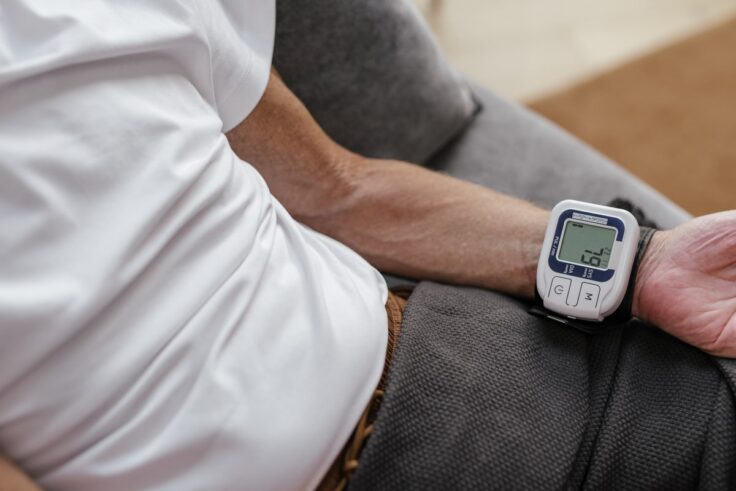6 Health Monitoring Devices Every Home Should Have

From scales and thermometers to wearable EKG devices and BPMs, here are six essential health monitoring devices every home should have.
Technology transformed the health industry in the late years, making it so easy to track your fitness level and health signs. You have everything at your fingertips, literally.
Most of the phones nowadays can measure your pulse, count your steps, and track your fitness and weight loss progress.
Now, if you suffer from a health condition, you need to accurately measure your body signs. This means you need some specialized health monitoring devices.
So we’ve put together a list of six health gadgets every family must possess, especially during the pandemics.
6 Essential Health Monitoring Devices
Without any doubt, every family should have these health monitoring devices:
1. Scale

Whether you use it to track your weight or hate it and hide it under your bathroom sink, a scale is one of the most owned health monitoring tools.
That’s because of its simplicity of use. You just hop on it and you get your weight. This is the easiest way to evaluate your overall health and keep track of your progress.
Some scales go beyond measuring just your weight and can estimate your body fat percentage. This is especially helpful to reach a certain fitness level and to adjust your diet accordingly.
Today’s smart scales also send the data to your phone through dedicated apps so you don’t need to track it manually.
Scales are easy to use and accurate health tools that should be found in every home.
2. Thermometer

A thermometer is an essential health tool in every home, especially with the current COVID-19 pandemic. Since fever is one of the main symptoms of coronavirus, a thermometer helps you check your body temperature periodically.
Don’t worry, you don’t have to hold the thermometer under your armpit or under your kids’ tongues anymore. The thermometers have evolved along with technology.
There are infrared thermometers that don’t even have to touch your skin to get your body temperature. You’ve seen them at the entrance in every supermarket nowadays.
The body temperature of a healthy adult can be anywhere from 97 F to 99 F. That’s around 37 degrees Celsius.
3. Pulse Oximeter

A pulse oximeter measures the oxygen saturation of your blood. It is a small device you place on one of your fingertips.
Besides estimating the oxygen saturation, a pulse oximeter also measures your pulse rate, which is the same as your heart rate.
The great thing about this health device is that it tells you the approximate amount of oxygen found in your blood without having to take a blood sample.
The oxygen saturation level (SpO2) is presented as a percentage and can range from 95% to 100% in healthy individuals.
4. Blood Pressure Monitor

This is one of the health monitoring devices you need to use if you’re suffering from heart disease or related health conditions.
Measuring your blood pressure every few hours and keeping a record of it is truly helpful in managing your health.
The record helps your doctor assess your situation and take further action regarding your medication. It is also a good indicator for those who take pills to control their blood pressure to see if they are working or not.
According to CDC, a normal blood pressure reading is below 120/80 mmHg. But of course, this can vary depending on numerous factors such as the time of the day, age, health status, etc.
5. Wearable EKG

You can now track your heart rate anywhere and anytime with a wearable EKG monitor which delivers a medical-grade electrocardiogram (ECG) to your smartphone in real-time.
Most cardiac monitors keep a record of your heart rate and ECG/EKG with the help of an app. But some, such as Wellue AI ECG Monitor, go beyond this and use AI to identify various arrhythmia risks.
Besides helping you track your heart rate, a portable EKG device also helps you save time and money on hospital checkups.
This is one of the most vital health monitoring devices since it can prevent strokes by scanning for atrial fibrillation. It could potentially save your life.
6. Health-Oriented Smartwatch

The times when you used a wristwatch to exclusively track the time of the day have long gone. Smartwatches do more nowadays than we could only imagine ten years ago.
Besides reading your emails, SMS, or IMs, your smartwatch also packs some powerful health monitoring tools:
- It measures your pulse rate and oxygen level similar to a pulse oximeter, but with less accuracy;
- Counts your steps and inform you when you need to move more;
- Estimate your calorie burn;
- And it even performs an electrocardiogram similar to an EKG monitor, but with less accuracy.
The fact that your smartwatch can record all these metrics in real-time throughout the day makes it one of the most powerful and easily accessible health monitoring devices.
Monitor At Home, But Discuss It With Your Doctor
Having these health monitoring devices at home is a great way to track and record your vital signs and alert you when health issues occur.
Even though some minor health conditions can be diagnosed and treated at home, this does not replace professional medical advice and treatment.
So, if you’re feeling ill, be sure to visit your family doctor. And bring your health records with you. They might prove helpful.
After all, these health monitoring devices do not replace wellness exams performed by experienced professionals.
Do you have any of these health tools at home? Which one? Let us know in the comments section below.